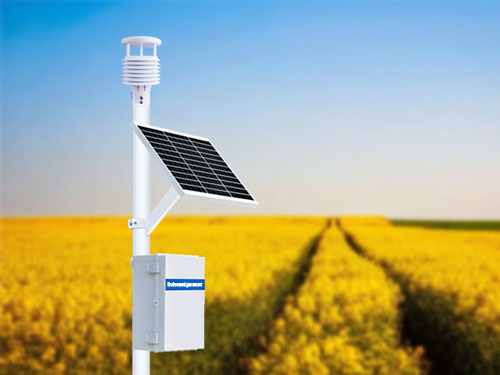Where Smart city sensors can be used in city building
With the advancement of information technology and intelligent technology, smart city has gradually become a hotspot of modern city construction. Smart city refers to a city model that utilizes information technology and Internet of Things (IoT) technology to realize the intelligence and automation of urban infrastructure and public services, and to improve the management and quality of life in the city. smart city sensors technology plays an important role as one of the core technologies of smart city.

Smart city sensors technology
Sensor technology refers to a technology that utilizes the principles of physics, chemistry and mechanics to convert physical, chemical and mechanical quantities into electrical, optical, acoustic and thermal signals for measurement, detection and control. In the construction of smart city, sensor technology is mainly used to collect all kinds of information in the city, such as traffic, environment, energy, security and other aspects of the data, through the data collection, processing, transmission and analysis, to achieve urban intelligence and automation.
Where Smart city sensors can be used in city building
1. Transportation
Transportation is an important part of a smart city, and the application of smart city sensors in transportation mainly includes traffic monitoring, traffic signal control, vehicle positioning and smart parking. For example, the use of site sensors and vehicle detectors and other sensor equipment, the city road traffic flow, speed, density and other sensor data collection, processing and transmission, so as to facilitate the traffic management department of real-time monitoring and control of traffic flow. At the same time, it can also realize functions such as vehicle positioning and navigation to optimize routes and shorten travel time through smart cards, GPS and other technologies.
2. Environmental aspects
Environment is an important area in the construction of smart city, the application of Smart city sensors technology in environment mainly includes air quality monitoring, noise monitoring, water quality monitoring and waste management. For example, by installing Air Quality Monitor, noise sensors and other devices, real-time monitoring of air quality and noise conditions in the city, and accordingly formulate corresponding environmental improvement measures. In addition, intelligent management of urban waste can be realized through devices such as smart garbage cans.
3. Energy
Energy is one of the important foundations of a smart city, and the application of smart city sensors technology in energy mainly includes energy monitoring, intelligent lighting and energy-saving control, etc. For example, in office buildings, shopping malls, etc., smart city sensors technology can be used to control the energy consumption. For example, installing intelligent lighting system in office buildings, shopping malls and other places, detecting the light condition through light sensors and adjusting the lighting brightness to realize the purpose of energy saving and environmental protection.
4. Security
Safety is one of the most important aspects of smart city construction, and the application of smart city sensors technology in safety mainly includes video monitoring, fire monitoring and security monitoring. For example, installing video monitoring systems in key areas such as public places and transportation hubs, monitoring through cameras and other sensor devices, and handling abnormal situations in a timely manner.
There are many other applications of sensor technology in smart cities, which not only improve the efficiency of city management, but also greatly improve the quality of life of residents.






